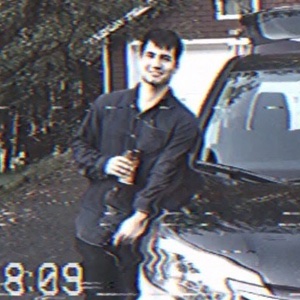33+ Eye-Opening Movies About Homelessness
An estimated half-million Americans live without shelter. These movies about homelessness expose the raw reality of what it’s like to live on the streets.
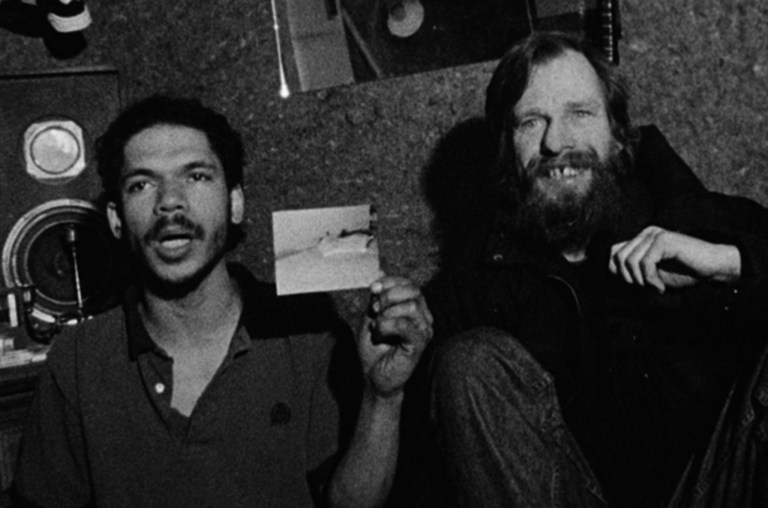
One of the grimmest ironies about the United States is the fact that despite being the world’s wealthiest country, as of 2020 there were an estimated half-million Americans who live without shelter.
Since Americans had a bigger social safety net in the distant past, movies about homelessness didn’t really start getting made until the 1980s, after President Ronald Reagan cut funding for mental hospitals and in the process created a whole new generation of people who lived out on the streets.
These movies pivot around a poignant fact: Sometimes the “bums” have more dignity than the rich people who scoff at their very existence. As you can see from the following synopses, movies about homelessness allow people from wildly different walks of live to recognize their shared humanity.
Trading Places (1983)
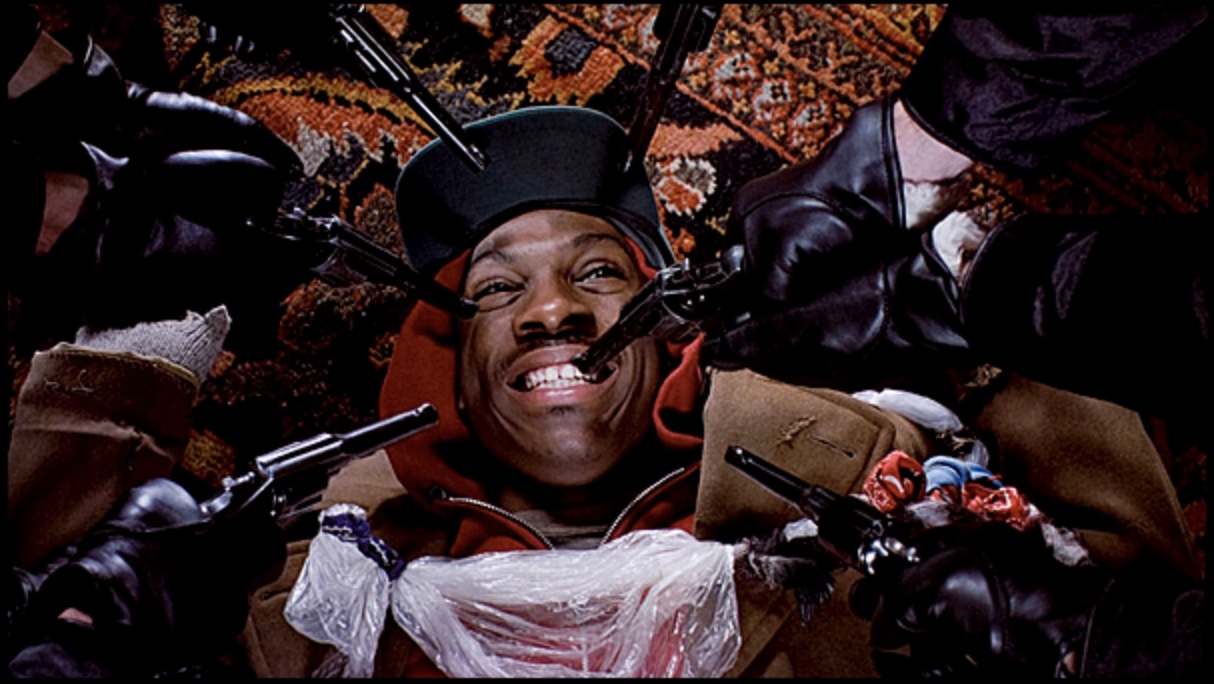
SNL alumni Dan Aykroyd and Eddie Murphy star, respectively, as an uppity white investor and a charismatic homeless black person who wind up “trading places” after two millionaires use them as props to determine whether environment or breeding is more important to success in life. Aykroyd finds that surviving on the streets is much harder than he imagines, while Murphy has no trouble gaming the stock market. This film, which is thought to be based on Mark Twain’s The Prince and the Pauper, cemented Eddie Murphy’s status as a box-office superstar.
The Fisher King (1991)
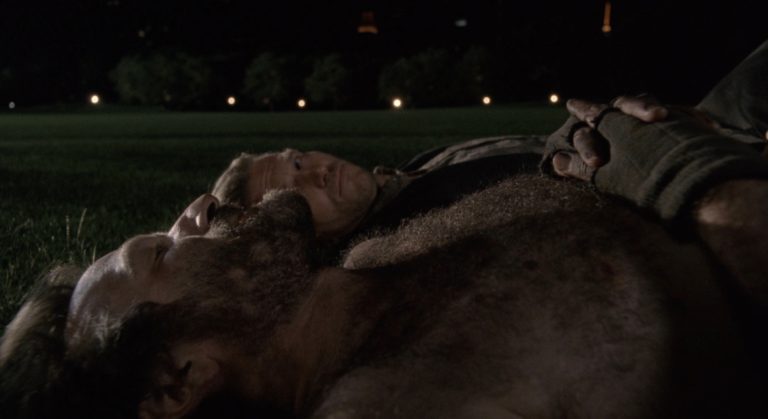
It’s hard to make a comedy about homelessness, but somehow director Paul Mazursky makes it work. Richard Dreyfus stars as a millionaire coat-hanger manufacturer who lives in Beverly Hills. Nick Nolte stars as a despondent vagrant who tries to commit suicide by jumping into Dreyfus’s pool and attempting to drown himself. He survives, and soon Dreyfus realizes how empty his own life is and that in some way, poverty teaches people to be wise and compassionate. Claiming that the film is mainly about “the authenticity of poverty,” Roger Ebert raved that it “made me laugh longer and louder than any film I’ve seen in a long time.”
The Lovers on the Bridge (1991)
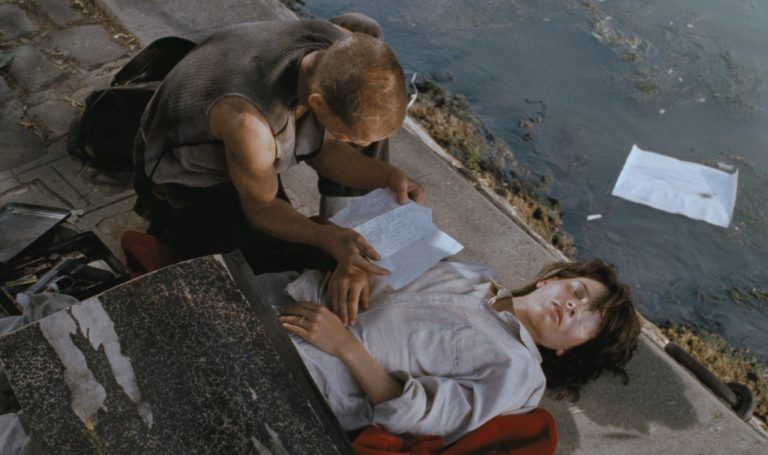
Jeff Bridges stars as Jack, an obnoxious radio DJ whose penchant for insulting his listeners leads one of his fans to go on a killing spree. Wracked with guilt over the event, Jack quits his job and sinks deep into alcoholism. He befriends a homeless man named Parry (Robin Williams), who convinces him that a Manhattan billionaire owns the Holy Grail and that if they work together, they can steal it and solve both of their financial problems.
Curly Sue (1991)
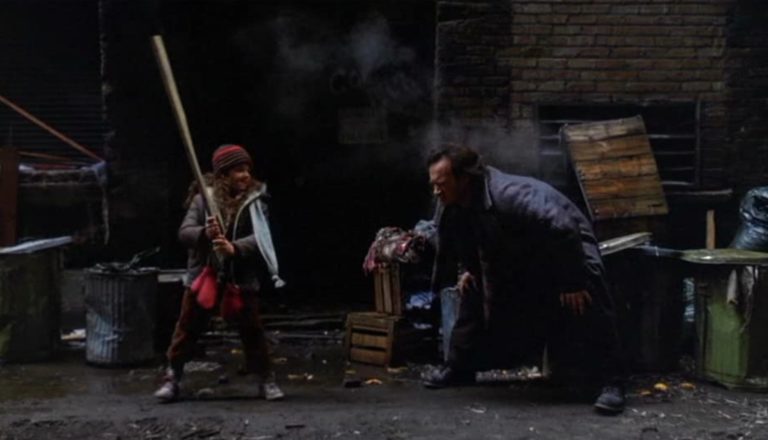
James Belushi stars as Bill Dancer, a homeless drifter whose traveling companion, a little girl named Curly Sue (Alisan Porter), travel through America conning their way into shelter and meals. They conspire to frame an “accident” wherein Belushi gets hit by a car that just so happens to be driven by a wealthy Manhattan lawyer named Grey Ellison (Kelly Lynch). But the lawyer becomes beguiled by Curly Sue and eventually falls in love with Bill. Roger Ebert says, “The movie is a fantasy from beginning to end. It was filmed in the real world, but could not possibly have taken place there. It’s not great and it’s not deep, but it sure does have a heart.”
The Saint of Fort Washington (1993)
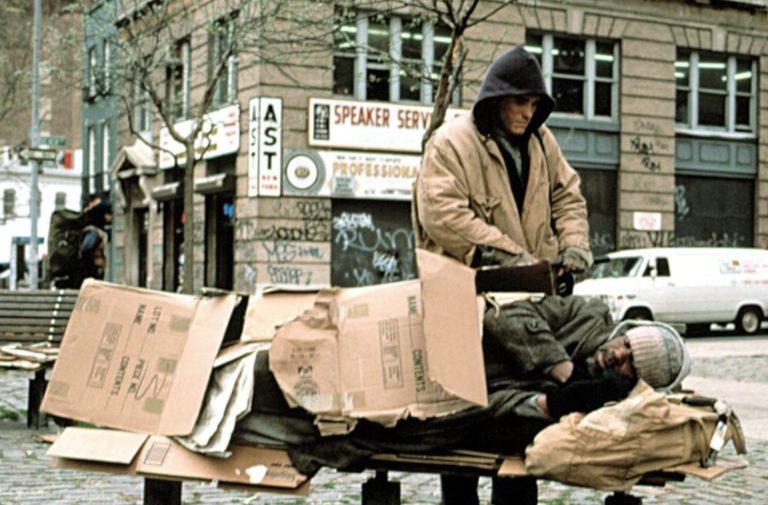
Matt Dillon stars as Matthew, a homeless schizophrenic who befriends a homeless black man named Jerry (Danny Glover), after they meet up at Manhattan’s Fort Washington Shelter for Men, which is ruled by bullies. Roger Ebert summarizes the film’s grim conclusion: “The problem with sleeping in a city shelter, we learn, is that it’s more dangerous than the streets. The strong brutalize the weak, and you are likely to awaken without shoes or other possessions.”
With Honors (1994)
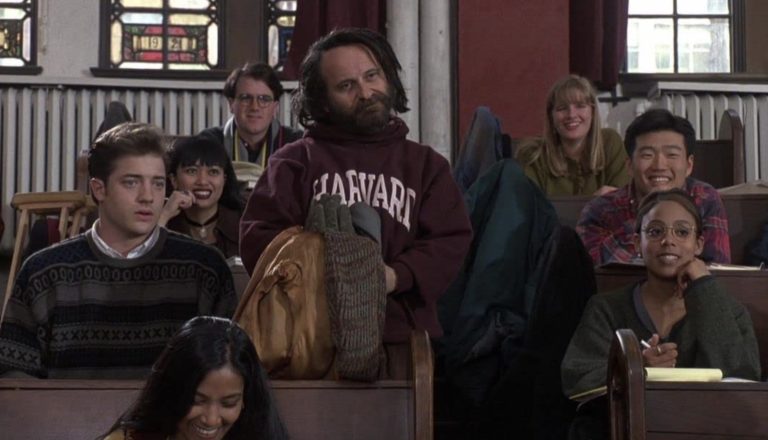
Brendan Fraser portrays Monty, a Harvard student who loses the only copy of his graduate thesis while en route to Xerox it. Joe Pesci is Simon, a homeless man who recovers the thesis after it slips through some sidewalk grating. Holding Monty’s entire future in his hands, Simon hands the thesis back to Monty one page at a time, but with a price—each page is grudgingly given back only in return for food and/or shelter. Pesci also humiliates Monty’s domineering teacher (played by writer Gore Vidal) by demonstrating that he knows more about constitutional law than the professor does.
Sunday (1997)
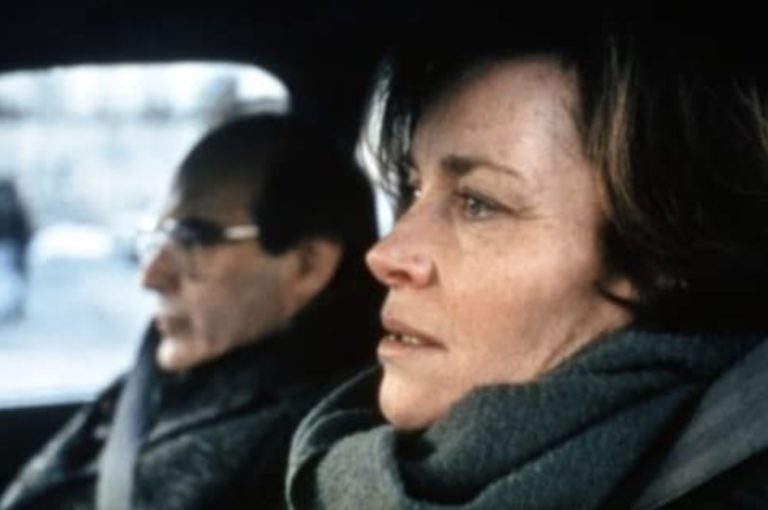
On a Sunday during a grim winter in Queens, New York, a wealthy woman named Madeleine (Lisa Harrow) mistakes a homeless man named Oliver (David Duchet) for a famous European film director. Oliver plays along with it and pretends he’s the director, leading the pair into a sexual rendezvous at Madeleine’s apartment. Oliver summarizes unemployment: “The hardest thing is having nothing to do. Every day is Sunday.’’ The film won the Grand Jury Prize at the 1997 Sundance Festival.
Train on the Brain (2000)
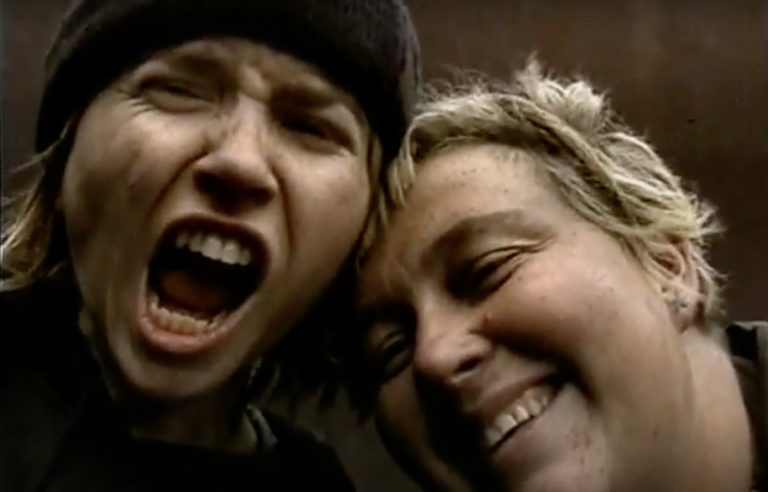
Filmmaker Alison Murray—herself a “hobo” who rides trains throughout the US and Canada—made this highly sympathetic documentary about eight real-life train riders and why they’ve decided to ditch “square” life in favor of the excitement and danger of riding trains. Paste magazine, while chiding Murray for her complete lack of criticism for her subjects, summarizes the film: “Murray illegally rode the rails across North America, sometimes in relative comfort and sometimes in filthy coal cars, with an assortment of young punks and self-described hobos.”
Dark Days (2000)
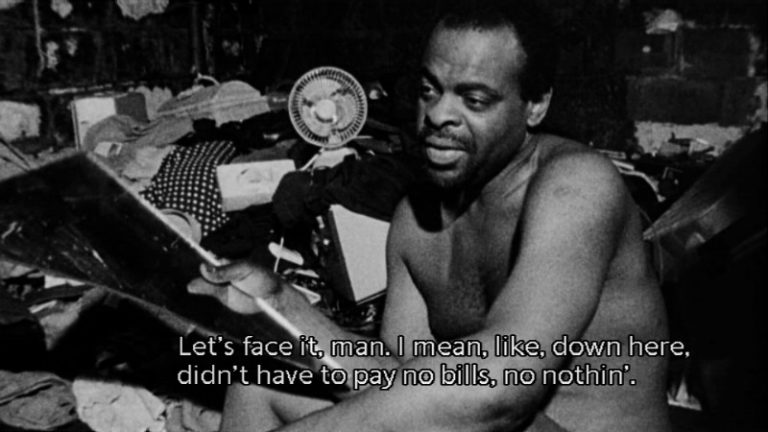
Dark Days is an incredible documentary film by Marc Singer. It was shot in the 90s and showcases what life is like living homeless under the New York City subway system. The film also offers an interesting glimpse into drug addiction. In one of the more memorable lines from the movie, an anonymous homeless person describes the impossible and Sisyphean wheel of crack cocaine addiction thusly: “I like to O.D. I like to almost O.D. on drugs. Yeah. I like to go to the highest. Man, I loved it. I loved it. Wow. And I kept smoking, kept smoking. But I never got to get back to that high, that first high. That first high, yeah. I never got it.”
Children Underground (2001)
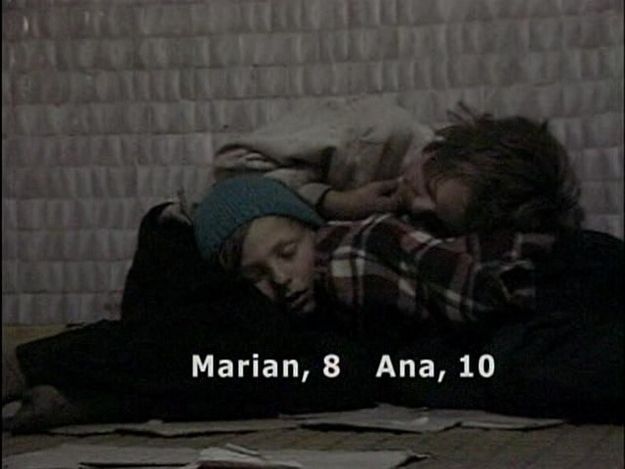
A chilling documentary profiling the lives of street children living under Romania’s communist regime. Contraception was banned under dictator Nicolae Ceauşescu, and as a result many impoverished parents set their children loose to live on the streets. The film focuses on five of these children, who are so despondent that they often use the money they get from panhandling to buy and huff spray paint instead of spending it on food. According to review site Corn Dog Chats, “Each one of these children’s lives is uniquely heartbreaking, and often we are given the mystery of learning just enough to maybe form an opinion, but never enough to be sure of how such evil befell them….They have nowhere to go, and seem to come from nowhere. I am not sure what could be more troublesome and senseless than that.”
Catching Out (2003)
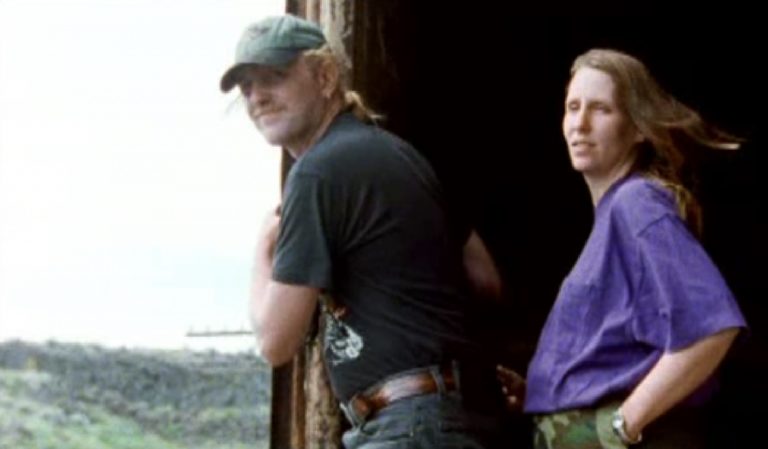
Another documentary about hobos and train-hopping in the vein of Train on the Brain. Director Sarah George focuses on two hobos named Switch and Baby Girl who are forced to give up train-hopping when Baby Girl becomes pregnant. The AV Club says the film depicts hobos as “a dying breed of all-American iconoclasts who bravely opt out of a materialistic, hyper-competitive society. To the modern hobos profiled in the film, riding the rails is more than just a way to get from one place to another. It’s a way of life, a calling, and the foundation of an alternative community dedicated to preserving a lifestyle most associated with the bad old days of the Great Depression.”
Tokyo Godfathers (2004)
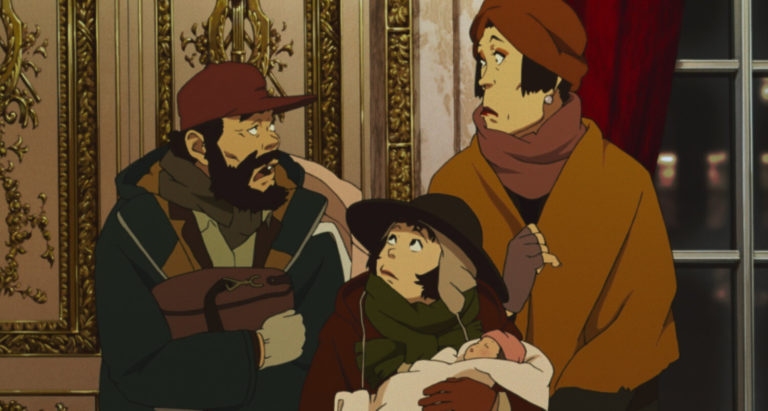
The only animated film on this list—and possibly the only full-length animated feature about homelessness in movie history—Tokyo Godfathers tracks the story of three homeless people who find a newborn baby in the garbage on Christmas Eve and make it their mission to find the infant’s parents. SF Gate says that “Along the way, they bond to the infant in much the way they have to each other, as a precious lifeline.”
The Pursuit of Happyness (2006)
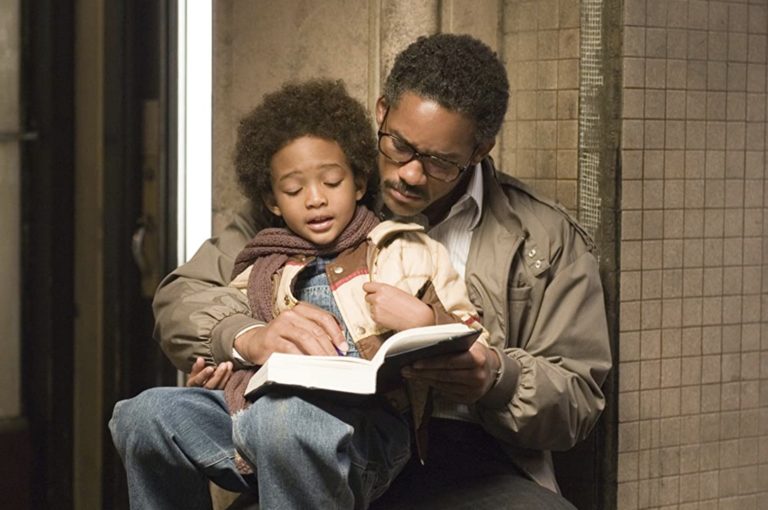
Will Smith stars as a single father named Chris Gardner who is evicted from his apartment along with his young son (Smith’s real-life son Jaden). Just as he finds a job at a high-profile brokerage firm, Gardner must keep up appearances and pretend he’s not homeless, even as life throws one wicked curveball at him after the next and they bounce between one homeless shelter after the next.
Cats of Mirikitani (2007)
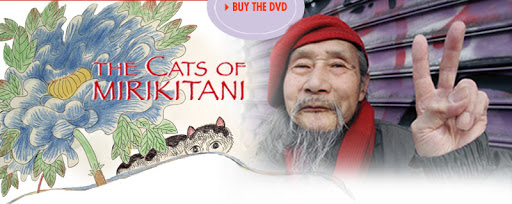
A documentary by Linda Hattendorf about Jimmy Mirikitani, an elderly Japanese artist who was homeless and selling his paintings on the streets of Manhattan near the World Trade Center before the events of 9/11/2001 sent his life into further disarray. A victim of an internment camp during World War II, Mirikitani paints two things—cats and images of his life in an internment camp. Hattendorf allowed Mirikitani to move in with her and share his life’s story during the film’s making.
Wendy and Lucy (2008)
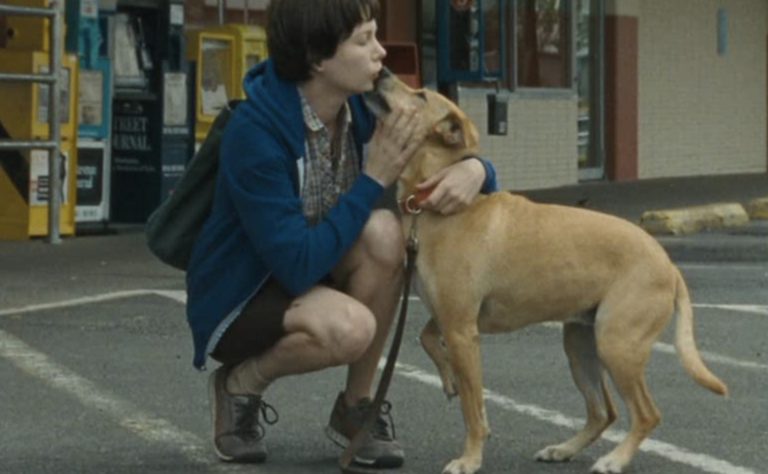
Wendy is a homeless woman who, through a spate of bad luck, finds herself homeless, living in her car, and traveling the country with her golden retriever Lucy. One summer morning she wakes up in rural Oregon. Her car won’t start and she has no dog food. This leads to a series of events where she must quickly use her wits to survive in a place where she’s a stranger and doesn’t know anyone except for her beloved dog.
Drillbit Taylor (2008)
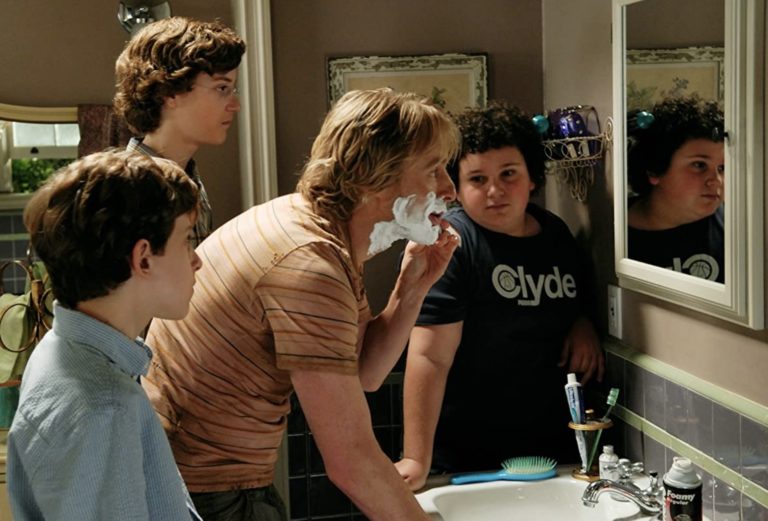
Owen Wilson stars in the title role as a former Army Ranger who’s become a homeless drifter and subsists by dumpster-diving and scouring highways for spare change. Three bullied kids hire Taylor as a bodyguard. Although initially cynical and determined merely to exploit their naïveté, he changes his tune and becomes empathetic when he realizes how severely bullied they’ve been. He dedicates his life to teaching the kids how to defend themselves against bullies.
The Soloist (2009)
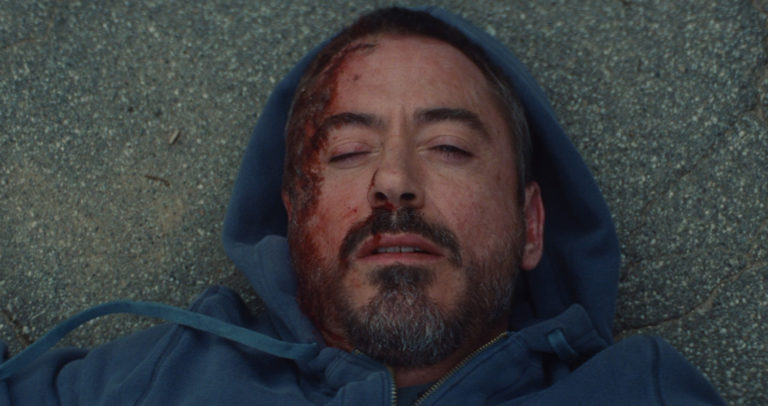
Robert Downey, Jr. stars as an LA columnist who is bored with his job and is stressed-out that his marriage is falling apart. While wandering through LA’s Skid Row—which has been the USA’s largest homeless encampment for decades—he runs across Nathaniel Ayers (Jamie Foxx), whose virtuosity on a two-stringed violin reveals that he is a musical genius. He initially considers using Nathaniel as a story idea, but after getting to know him, he realizes that he needs to change himself.
Lost Angels: Skid Row Is My Home (2010)
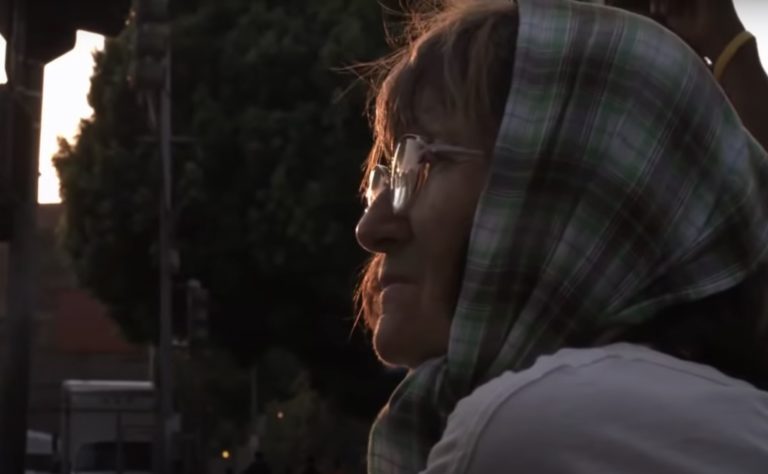
Catherine Keener narrates this documentary of LA’s most famous and largest homeless encampment, focusing on the lives of eight homeless people who barely subsist there. Few people expect to find Olympians, Harvard lawyers, scholars, and successful musicians living on Skid Row. A reviewer for Apple TV said, “The film shows how their descent into society’s basement has been exacerbated by the forces of gentrification and the increasing criminalization of homeless people, while exposing the draconian changes to the mental health care system that have brought us here.”
Hit ‘n’ Strum (2012)
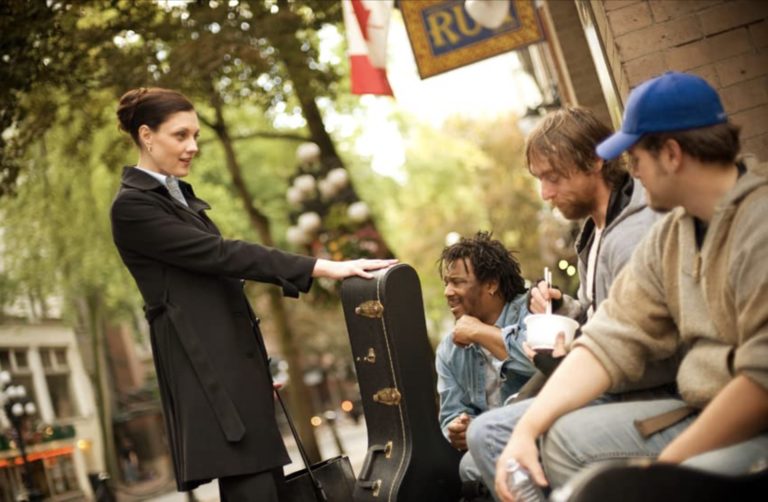
After committing a hit-and -run with her BMW on a homeless man named Mike (Kirk Caouette), a beautiful career woman named Stephanie (Michelle Harrison) attempts to clear her conscience by befriending her victim, a homeless but talented street musician. When she makes a romantic move on him and offers to let him move in with her instead of letting him just sleep under the Georgia Viaduct in Vancouver, he initially resists. Straight.com gave the movie a thumbs-down: “In a tale ostensibly about the across-the-tracks transformation of two unlikely characters, Caouette forgot to give one of them a personality. Mike does hand Stephanie a drum, but he beats it in the end.”
Duke (2012)
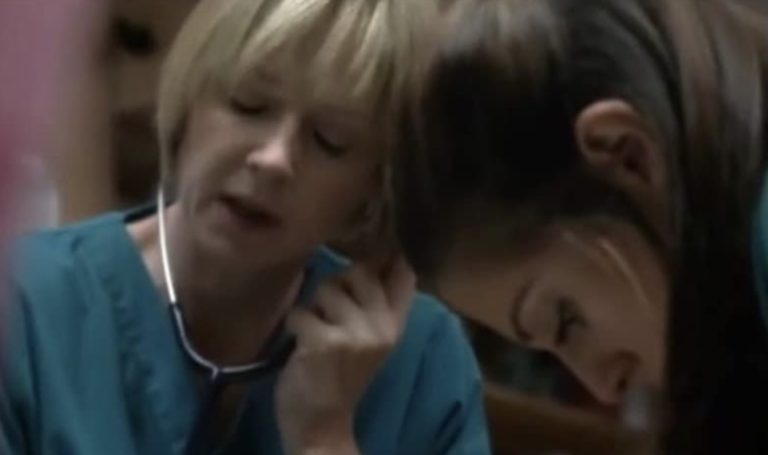
This made-for-TV movie is a real tear-jerker in which a homeless veteran, his mind addled with PTSD ever since he got back from war, drops off his dying dog “Duke” at a veterinary clinic because he can no longer afford to take care of him. After a staff nurse’s tremendous efforts, Duke is brought back to health; now her task is to find the homeless veteran. A reviewer on IMDb enthused, “It is unflinching in showing the wreckage of the man’s life caused by his military service, his PTSD and his injury.”
Hummingbird (2013)
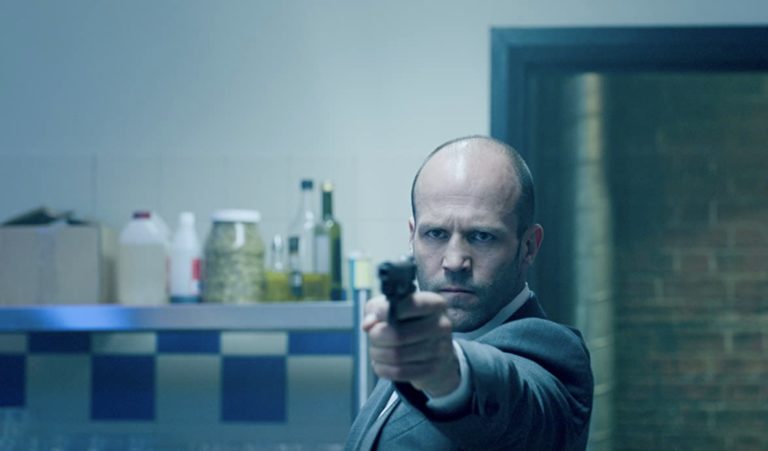
Hummingbird is a British drama about a fugitive ex-soldier who is attacked one night in London, which gives him the opportunity to assume another man’s identity while living on the streets. Flick Filosopher gave the film a negative review: “Some of it is hilariously awful, and some is just plain awful. But [actor Jason] Statham’s attempt to be taken seriously as an actor is honest, at least….It’s all intended to be terribly solemn and terribly tragic, I think — like how Joey hallucinates a flock of hummingbirds when his PTSD kicks in….But it’s all absolutely ridiculous and histrionic.” In the United States, the film was released under the name of Redemption.
Heaven Knows What (2014)
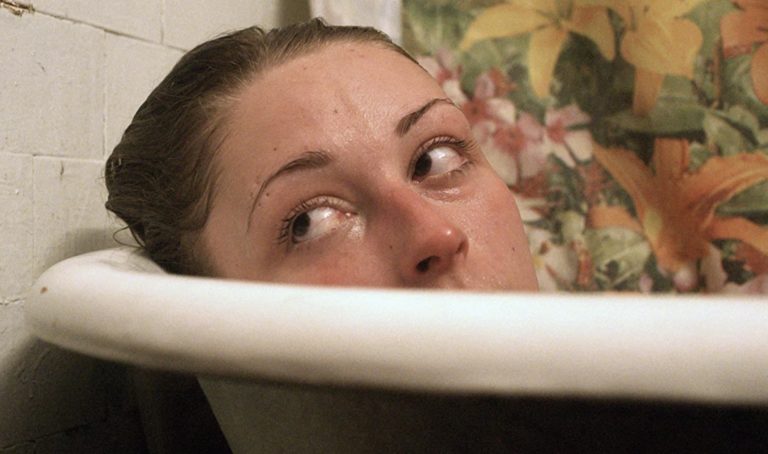
The story of a young female heroin addict named Harley (Arielle Holmes, who was actually a heroin addict in real life at the time) and her fruitless attempts to stay on good terms with her abusive boyfriend Ilya. Ilya is so rotten that he tells Harley the only way to make things right with him is to kill herself. According to Cine-Vue, “Ilya is a compulsively dislikable death metal fanatic who abuses those who care for him and sneaks weapons into a fistfight, while Harley – as tragically vulnerable as she is – lacks any sense of will power or personality with which to identify.”
Squatters (2014)
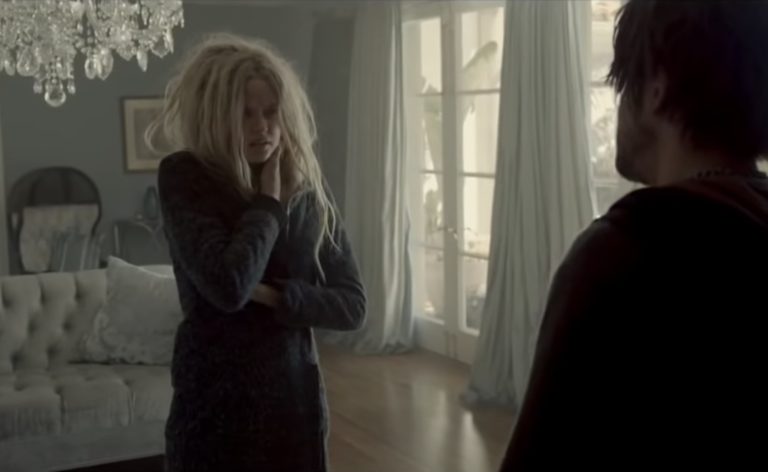
Returning home early from a vacation, a wealthy family who lives on the California coast realizes to their dismay that a young homeless couple has been squatting in their home the whole time. But the family only returns home in the last quarter of the film. According to Film Gate Reviews, “The plot description suggests that the family comes home and finds the squatters in their house, but the main plot is really just Jonas and Kelly living the high life and the crime life.”
Time Out Of Mind (2014)
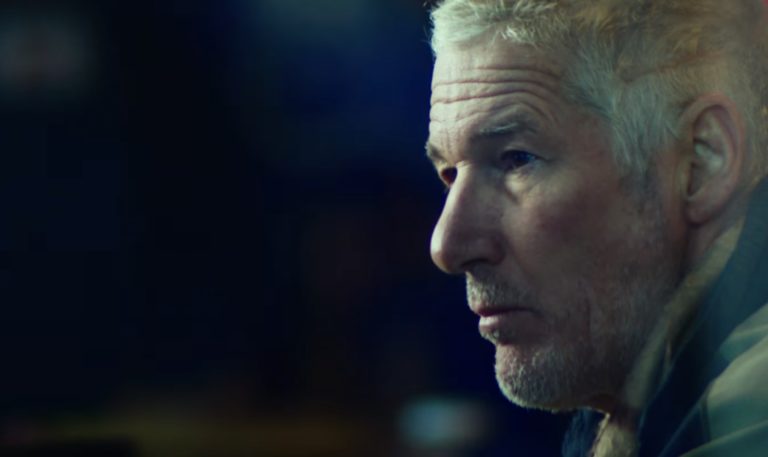
Busting way out of his typical roles as a sexy stud, Richard Gere stars as a hapless homeless man named George, who hasn’t had a job for years and has lived off the kindness of women the entire time. When his most recent girlfriend gets evicted from her Brooklyn apartment, George becomes homeless. Interestingly, Gere “auditioned” for the film by panhandling in Manhattan along with other homeless people. No one gave him any money, and no one realized it was Richard Gere. Film Leaf says, “But there’s a message in this performance: all homelessness is a reduction, a fall from the grace of a stable life.”
Shelter (2014)
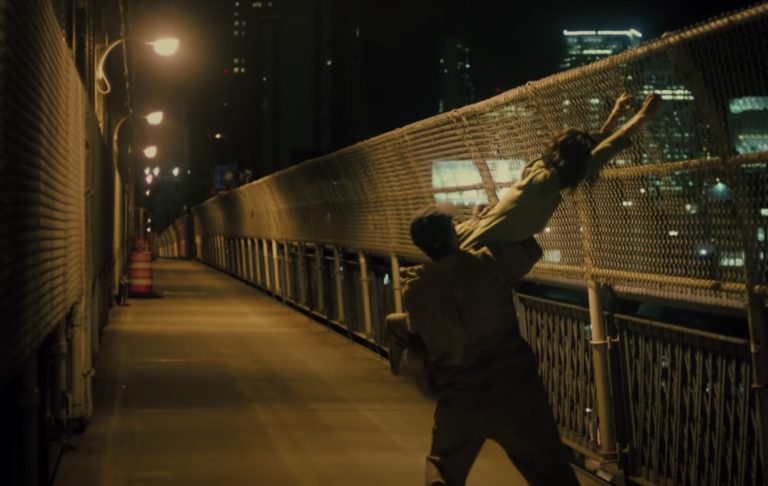
This made-for-TV movie tells the story of Hannah and Tahir, two homeless people who fall in love after meeting on New York’s dirty streets. Metro compared the film unfavorably to two other homeless-themed movies of the year, Heaven Knows What and Time Out of Mind: “‘Shelter’ has junkie Hannah hold up a sign that reads ‘I USED TO BE SOMEONE.’ It’s a movie about those everyone ignores on the streets, who have not only pasts but are also people too, and it will put these intentions in all caps.”
The Lady in the Van (2015)
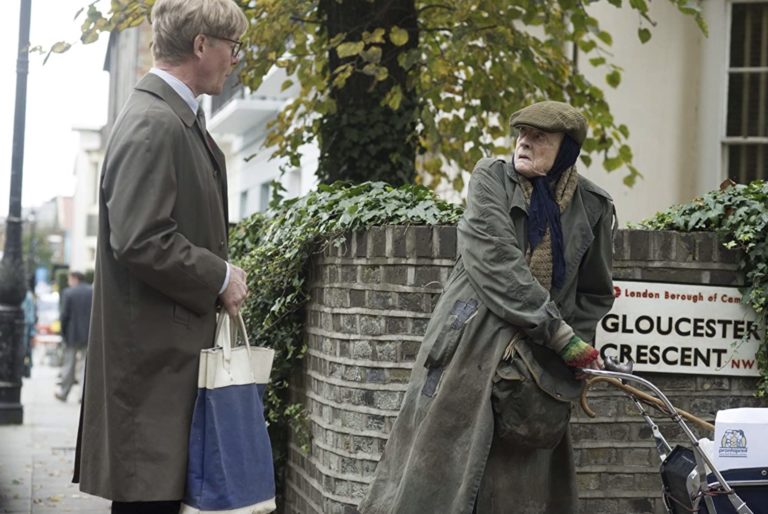
The true story of Miss Shepherd, an eccentric homeless woman of uncertain origins, who ‘temporarily’ parked her broken-down van in writer Alan Bennett’s London driveway and proceeded to live there for the next 15 years. The Austin Chronicle says that Shepherd’s character, which is played by Oscar-winner Maggie Smith, is “a gifted pianist and a former nun who’s fluent in French, among other things, a woman who cannot forgive herself for a terrible thing that occurred years ago on a secluded country lane.”
A Street Cat Named Bob (2016)
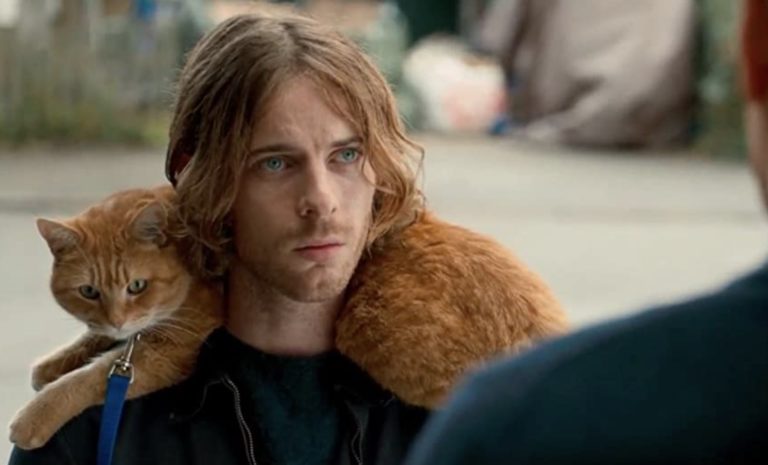
Based on a best-selling book of the same name, A Street Cat Named Bob tells of how a homeless musician and recovering drug addict named James Bowen is set on a path to redemption and healing when he adopts a stray ginger cat he found on the streets. Film Dude says, “A Street Cat Named Bob is a powerful film that focuses on the fragility of the human condition, the kindness of strangers, and the healing power of animals.”
Same Kind Of Different As Me (2017)
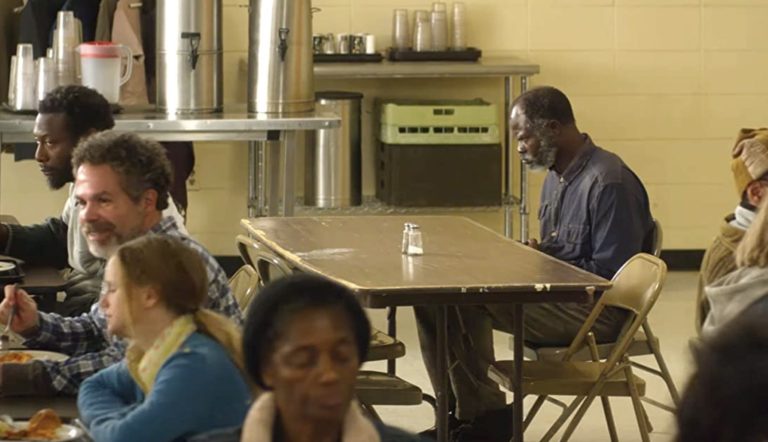
Based on the best-selling memoir of the same name cowritten by a white international art dealer and a black homeless man after white man’s wife died from cancer, Same Kind Of Different As Me stars Renee Zellweger as Deborah Hall, a woman who had a dream that she would meet a wise man out on the streets who would change her life for the better. When she meets Denver Moore (Djimon Honsou), a homeless black man with whom her husband was familiar due to the fact that her husband volunteered at a shelter in Dallas, she decides that he is the man from her dream. Together they attempt to build a friendship—but it’s not easy.
Fishbowl California (2018)
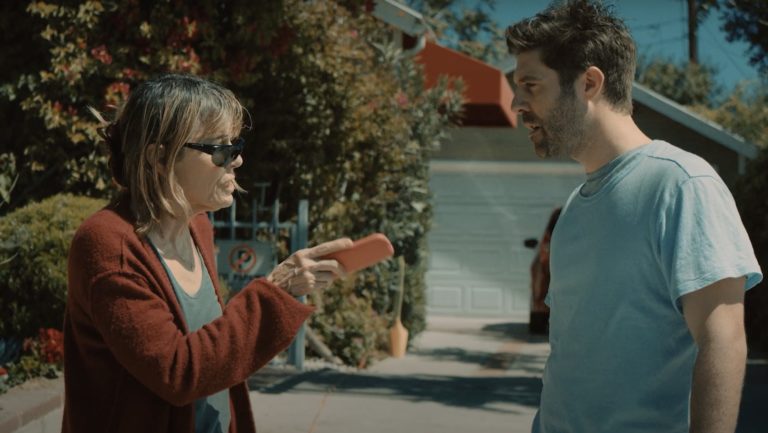
Los Angeles is the “fishbowl” in the title—a crowded, sprawling metropolis where it’s almost impossible to find solitude and peace. Steve Olson stars as Rodney, an unemployed man in his thirties who can’t pay his rent and who is cast out onto the streets after he finds his girlfriend has been cheating on him. One day when he’s attempting to charge his phone by tapping into the electricity at the house of an alcoholic woman in her sixties named June (Catherine Cortez), they start building an unlikely friendship based on reciprocity. June tells Rodney that he can use all the electricity he wants so long as he pays for it by doing odd jobs around the house.
The Public (2018)
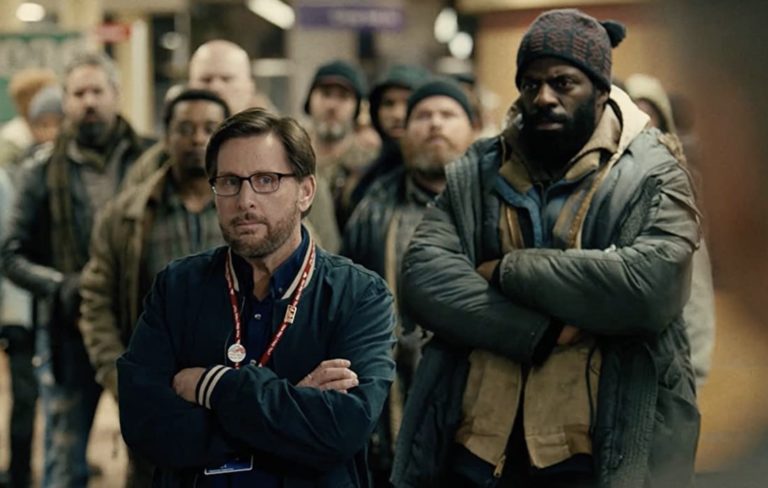
In this film that was written and directed by Emilio Estevez, he also stars as Stuart Goodson, a librarian who faces termination because that he ejected a homeless man from the library due to his rank body odor, only for the homeless man to turn around and successfully sue the library. But when an unusually frigid Cincinnati winter forces dozens of homeless people to squat in the library, Stuart eases his conscience by taking their side and fighting against city officials who are trying to send them back out onto the frozen streets.
Rosie (2019)
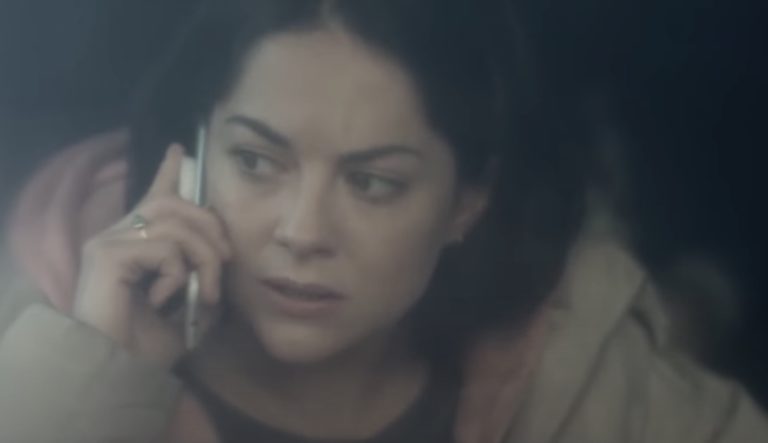
Set in Dublin, Rosie stars Sarah Greene in the title role as a mother whose family is driven out into the streets due to inflated rent prices. Trying to subsist in the family car, they are occasionally able to find cots in homeless shelters, but it’s a grim struggle. The Hollywood Reporter calls the movie “a quietly, gradually heartbreaking portrait of regular people coping with a desperate situation…the film is an empathy generator, an antidote to compassion fatigue.”
Homeless Ashes (2019)
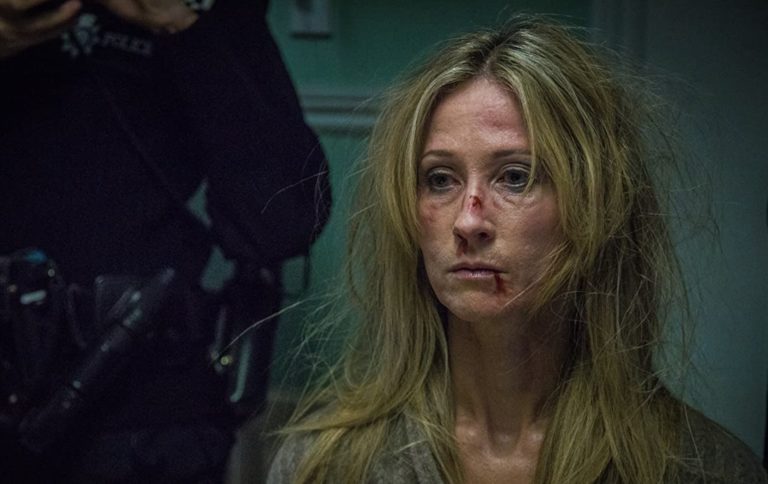
Child actor Hector Bateman-Harden stars at Frankie, a young boy in an abusive family situation who finally decides to run away, even if it means he’ll become homeless. Art Quench Magazine reserved special praise for Hector Bateman-Harden’s performance: “His ease, charm and vulnerability is so special and something I haven’t seen on screen from a child actor. He’s got the chops of a grown actor and whenever he’s on the screen he shines.”
I Met a Girl (2020)

Brenton Thwaites portrays Devon, a struggling and paranoid-schizophrenic musician who goes on a cross-country trek of endless transience in search of a woman named Lucy that he fell in love with. Film Gate Reviews says, “The heart of the movie is Devon attempting to find Lucy, Nick attempting to find Devon, and the enduring question is Lucy real or just a figment of Devon’s imagination?”
